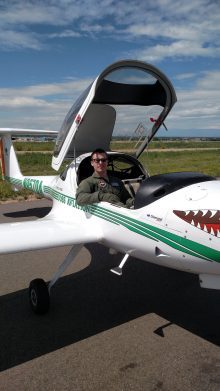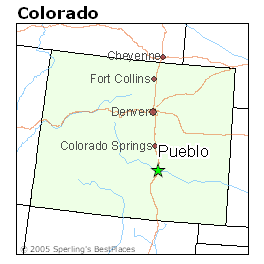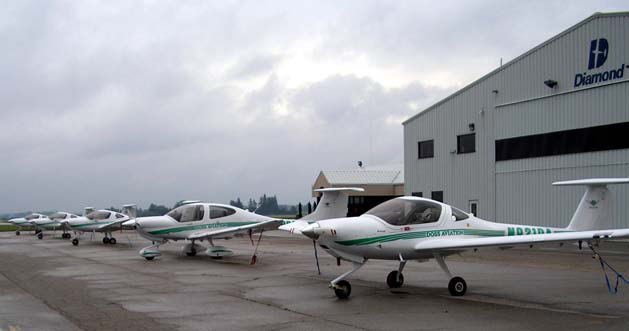
Note: Below is a guest post on Doctor Aviation. This is the second in a series (for the first one see: https://doctoraviation.com/becoming-an-air-force-pilot/). It is written by Craig, who is in the midst of becoming an Air Force pilot. It will give aspiring Air Force pilots a glimpse of what it is really like. In this case, IFT. This is Craig’s journey in his own words.
In my last blog, (https://doctoraviation.com/becoming-an-air-force-pilot/) I began a narrative of my journey to become a pilot in the U.S. Air Force. I briefly detailed some of the requirements to be selected for a pilot slot and ended with the significance of commissioning as a second lieutenant. In this blog I will write about the training program called Initial Flight Training (IFT) that is a prerequisite to begin Undergraduate Pilot Training (UPT) and how it challenged me both mentally and spiritually.
A few weeks after settling into my first base, I was shipped off to Pueblo, Colorado for my first flying experience. IFT is essentially an abbreviated and very basic form of pilot training. It was developed many years ago after the AF discovered a much higher success rate and fewer accidents in UPT from its students who had such a training beforehand versus those who had not. It may sound redundant to have both IFT and UPT, but when you sit down to think about the enormous amount of information involved in learning how to fly and the rigorous demands of UPT you can appreciate just how steep the learning curve can be and how beneficial an introductory type of training would be to an individual with zero flying experience.

The first week consisted of academics, what some call “death by PowerPoint”. It was a grueling time of sitting in lectures hour after hour. They taught about aircraft systems, aerodynamics, aircraft performance, airport operations, weather, radio communication, navigation, and FAA airspace. It was a considerable amount of information that you must retain for a test at the end of the week. If you fail the test, you get one more chance or your aviation career is over before you even begin flying.
The flying training begins with your “dollar ride”, meaning you traditionally pay your instructor a dollar for the “free”, introductory flight. From that point on, you are expected to take the reins and progress in your flying ability. A typical flight consists of a departure, various maneuvers such as stalls and slow flight in some reserved airspace, the arrival back to the airfield, and various patterns such as normal, no flap, and simulated forced landings. The entire flight is very task saturating and requires constant situational awareness and planning ahead for the next phase of flight. The big picture of what instructors are looking for is a willingness to work hard and to have the ability to land an airplane.
Emergency Procedures
Emergency Procedures (EPs) are a staple of military aviation. Scattered throughout the program are various EP practicums and quizzes. A stand-up is a practicum in which an instructor briefs an emergency situation while the entire class takes notes and prepares to be called upon to stand up in front of the class to talk through how they would handle the EP. There are formalities you must follow and phrases to memorize in order to give your brain something to fall back on under the stress. You either pass the stand-up by bringing the emergency to a logical conclusion, or you fail it requiring another student to stand up and finish it. If you fail the stand-up, you will not fly that day. The tabletop EP is essentially the same as the stand-up but one-on-one with an instructor. The EP quizzes are known as EPQs and are simply multiple choice test questions. Failing EPQs also disqualifies you from flying that day.

The Solo
One of the most exciting aspects to IFT was the solo. Flying solo in an aircraft with minimal experience is terrifying yet exhilarating. It is a huge confidence builder afterwards because you realize, “I can do this!” No one was up there coaching you through it. You realize that you really can fly and land the aircraft. After my solo, I finally felt assured that I’d make it through the program. Not only did it give me confidence in flying, it also gave me great confidence in trusting God.
An Important Lesson I Learned
For me growing up, I always felt like a jack of all trades but a master of none. I always wondered when I would find that one thing in life that I was very talented at and very passionate about. Until I was actually living it, I didn’t want to set my hopes on being a pilot in case somehow it didn’t work out. But now that I was living it, I set my hope that this would be the one thing in life that I was really good at. That’s when God challenged me.
God allowed me to be on the verge of failure throughout IFT. At first on the academic test. I passed by one question. Then in flying. I was placed on a remedial program called Commander’s Awareness Program (CAP). I had a difficult time landing the airplane. I was high strung and very stressed. After my solo, my spirits were higher and I remember vividly going back to my room and reading through Jeremiah 9:23-24.
Thus says the Lord: “Let not the wise man boast in his wisdom, let not the mighty man boast in his might, let not the rich man boast in his riches, but let him who boasts boast in this, that he understands and knows me, that I am the Lord who practices steadfast love, justice, and righteousness in the earth. For in these things I delight, declares the Lord.”

God was telling me through His Word that the one thing He wanted me to be passionate about above all things was knowing Him. My supreme gift in this life is in knowing God. Nothing in this world matters–not wisdom, might, nor riches–compared to knowing God. I should desire to boast in nothing less than to boast in knowing God. It was a powerful message. And it was a gentle reminder of the words of Christ about seeking first the Kingdom of God and His righteousness and all these things will be added to me.
I left Pueblo the day after passing my checkride. I left with a fresh perspective on flying and my faith. Those lessons would carry on through the next training, and the next one after that. I was thankful for the experience but even more thankful to have it behind me. Next up was the infamous undergraduate pilot training.
